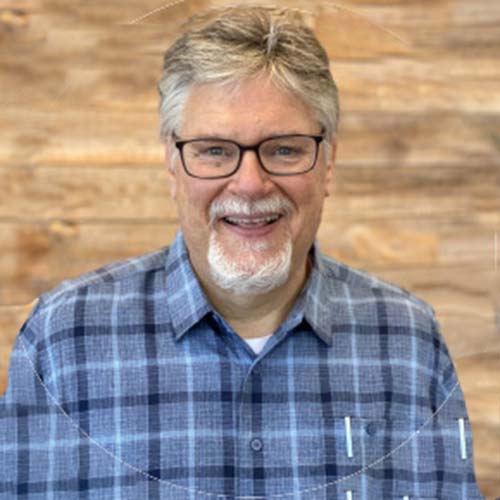The COVID-19 pandemic of 2020-2021 catapulted Christian churches around the world into the digital worship experience. Whereas many churches had put their toe in the water before the pandemic began, churches suddenly jumped into the deep end of the pool starting in March 2020. As vaccines and therapeutics become widely available, church leaders are now asking a different question: what are the spiritual costs to our members of worshipping online?
Local church pastors and elders must wrestle with this new reality from a theological framework, not a practical one. The technology of online worship will undoubtedly continue to improve, and the gap between the physical experience and the virtual experience will continue to close. In order to persuade people to regather in person for worship, discipleship, service, and evangelism, we need a biblical reason that embodied community is vital to spiritual growth and Christian flourishing.
I realize that the order of this conversation seems backward – we are already doing online church and virtual community. It seems like the horse is already out of the barn and we would be foolish to try to get it back in. I understand this feeling, but as we build the future of the church together, we don’t need to just go along with the crowd. We need to teach our people what the Bible says about the importance of their bodies for life, worship, and holiness.
My conviction is NOT that virtual worship is sinful, but that it is incomplete. The strongest parallel would be a husband and wife who connect daily over Zoom from different locations but are never with each other in person. Their virtual connection is helpful (and better than nothing), but no one would say that it is complete. Why? Because the marriage relationship is designed for emotional and physical intimacy. We can’t separate the two. Both heart-to-heart and body-to-body connections are vital for oneness.
Can we make the same case for the Christian community? Does the Bible teach us that embodied worship is necessary for Christian flourishing? Or are we only staying committed to an older form of worship that will go the way of the pew and the hymnal? This question and our answer are very important for the future we build together. Here are my FIVE big theological reasons that I believe embodied community is God’s best for Christian flourishing…
1- God created our bodies by design for a reason. The creation narrative shows us that our bodies are not secondary afterthoughts to our spiritual nature, but an essential part of who we are (see Genesis 1:26-28, 2:7-9, and 3:19). The virtual world tempts us to separate our physical bodies from our souls, but the created world doesn’t work this way. God created us as embodied people. This means that what we do with our bodies impacts our souls. What we eat (see Genesis 3), how much we sleep, our sickness and health – they all impact our spiritual condition. This is because God created us as physical/spiritual beings – both are important to human flourishing. We would all agree that people who ignore their spiritual nature will ultimately miss out on God’s best for their life. I am simply making the argument on the other side – those who ignore their embodied nature will also miss out on God’s best for their life. God created our bodies by design for a reason, and we are foolish if we ignore the connection between body and soul.
2- God commands what we do with our bodies. A survey of the OT law shows that God cares about what we do with our hearts (what we worship) AND what we do with our bodies. In fact, these are often connected to one another. God’s covenant law with Israel commands the people to not cut their bodies (Lev 19:28), to bring an offering in-person before the Lord (Deut 16:16), and to gather in a specific place for the reading of the Law (Deut 31:10-12). God gives instructions on how to bring physical sacrifices in worship (Exodus 29), how to burn incense in the Lord’s presence (Exodus 30), and how to serve the Lord in His presence. In addition, so many OT laws speak to the proper sexual use of the physical body in ways that honor God’s intended design (see Leviticus 18-20). The point is that the people of Israel could not separate their worship of God from how they used their bodies. They either use their bodies to worship God or they use their bodies to worship pagan gods.
3- Jesus came in the flesh and ministered to physical bodies. The central event that forms the Christian view of the world is the incarnation. God became human and took on flesh (John 1:14). The arrival of Jesus as Emmanuel (God with us) shows the importance of the human body to God – the goodness and sacredness of the creation. God could have sent his message by a prophet or written word, but instead, He took on flesh and bone becoming one of us. In His earthly ministry, Jesus healed and restored physical bodies – the blind, the deaf, the lame, and the sick. He cared for the hurt and ailing. His presence among us and His ministry to us show us the importance of the body to God.
4- God built the church to work as an embodied community. So many of the NT instructions to the church require in-person, embodied community: baptism (Matthew 28:19), communion (Luke 22:14-19), laying on of hands (1 Tim 4:14), breaking bread (Acts 2:41-47), serving one another (1 Peter 4:10), anointing with oil (James 5:14), etc. In addition, many NT passages repeat the theological connection of the OT between body and soul. 1 Corinthians 6:12-20 calls us to glorify God in our bodies. It is a passage primarily about fleeing from sexual immorality, but the theological principle underneath that command is the connection between body and soul. He even says in 6:15, “don’t you know that your bodies are part of Christ’s body?” Think about that for a minute – not just your soul is connected to Christ, but also your body. Several other passages in 1 Corinthians echo this message: your body is the temple of the Holy Spirit (3:16-17), marriage is about giving your body to one another (7:4), we exercise discipline with our bodies (9:27), we are one body in Christ sharing one bread (10:17), we should not be divided when we come together (11:18). The point is that God designed us to be together in our bodies as part of the one body of Jesus Christ. We worship not just in spirit, but also with our physical bodies (see Romans 12:1-2).
5- Our future hope includes a resurrected body. The Lord Jesus rose physically from the dead on the 3rd day after his death. Christian orthodoxy doesn’t proclaim a spiritual resurrection, but a physical resurrection. Jesus rose from the dead in a new body, and He promised that we would also one day experience a resurrected body. 1 Corinthians 15 records (at great length) the centrality of the bodily resurrection of Jesus and the great hope we have for a new body when Christ returns. The book of Revelation gives us a picture of the eternal state that is physical and embodied, not spiritual and ethereal. Heaven comes to earth, and we inhabit a new earth in our resurrected bodies. The point is that our future hope is not floating around on the clouds as disembodied spirits, but in living forever in heavenly bodies that don’t get sick, don’t wear out, and don’t die.
This quick summary is intended to simply remind you that your body is not secondary to your essence and your worship is not just about what you do with your heart and your mind. God calls us to worship Him with our whole self – our immaterial AND our material self. This is why the Christian life is not best done remotely through digital connections. We need to physically be with one another in worship, community, and service so that we can grow and flourish together.
Friends, let us thank God for the gift of technology that allows us to stay connected during difficult times. But let’s not stay remote when we are able to gather in person. For God created us as physical beings, and He desires that we connect with Him while we are physically present with one another.



